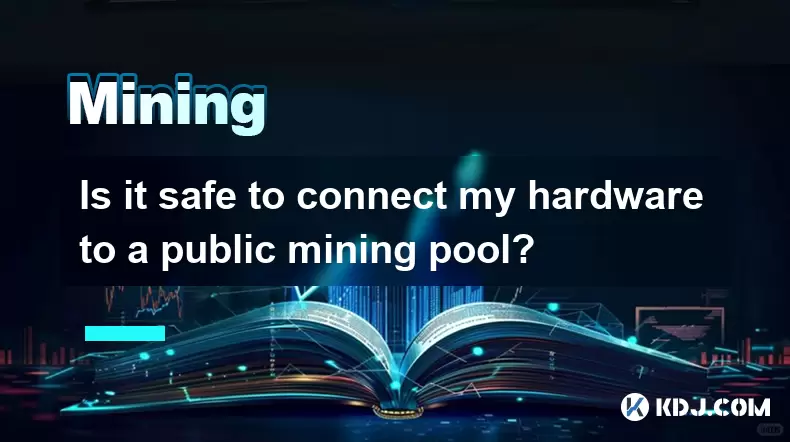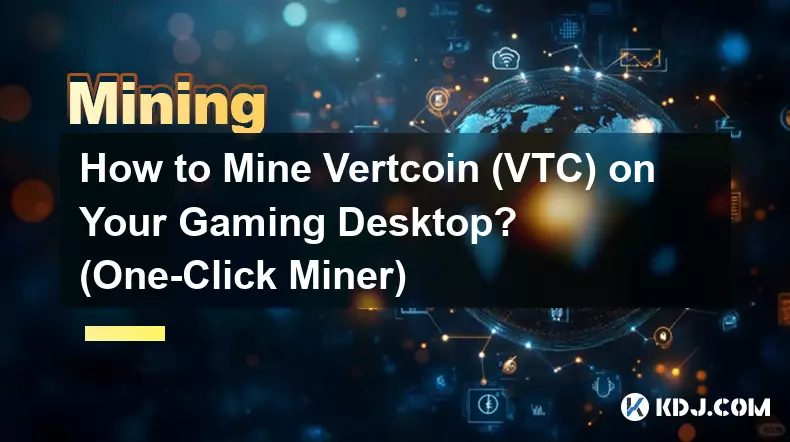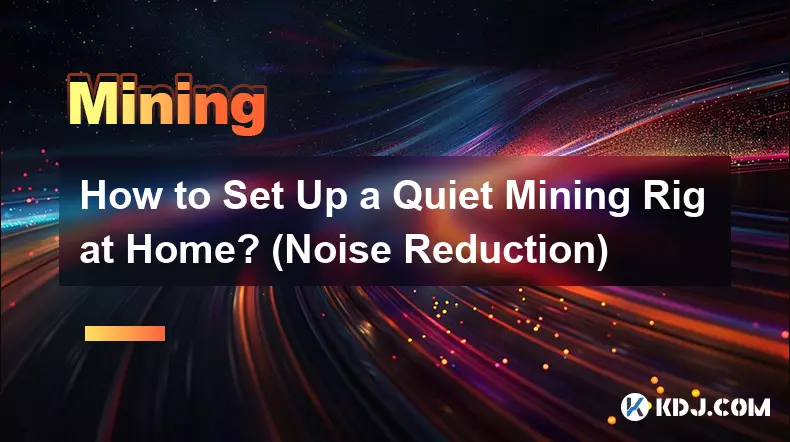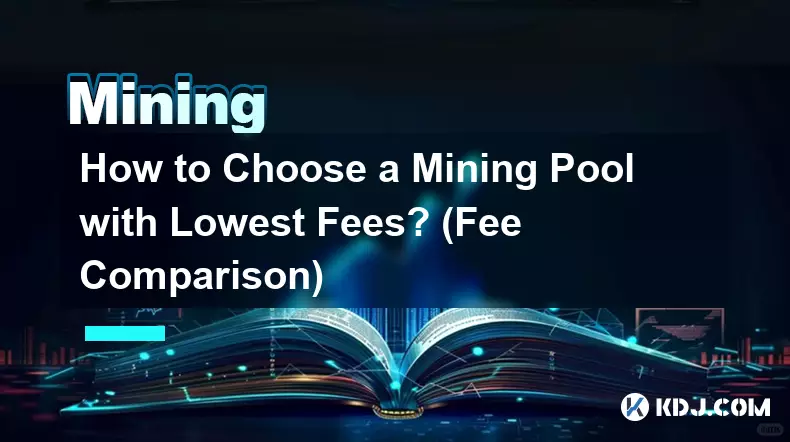-
 bitcoin
bitcoin $87959.907984 USD
1.34% -
 ethereum
ethereum $2920.497338 USD
3.04% -
 tether
tether $0.999775 USD
0.00% -
 xrp
xrp $2.237324 USD
8.12% -
 bnb
bnb $860.243768 USD
0.90% -
 solana
solana $138.089498 USD
5.43% -
 usd-coin
usd-coin $0.999807 USD
0.01% -
 tron
tron $0.272801 USD
-1.53% -
 dogecoin
dogecoin $0.150904 USD
2.96% -
 cardano
cardano $0.421635 USD
1.97% -
 hyperliquid
hyperliquid $32.152445 USD
2.23% -
 bitcoin-cash
bitcoin-cash $533.301069 USD
-1.94% -
 chainlink
chainlink $12.953417 USD
2.68% -
 unus-sed-leo
unus-sed-leo $9.535951 USD
0.73% -
 zcash
zcash $521.483386 USD
-2.87%
Is it safe to connect my hardware to a public mining pool?
Connecting your mining hardware to a public pool can expose sensitive data and increase security risks if proper precautions like SSL encryption and updated firmware aren't used.
Jul 05, 2025 at 07:31 pm

Understanding the Risks of Public Mining Pools
When considering whether it is safe to connect your hardware to a public mining pool, it’s essential to understand what a public mining pool entails. A public mining pool is a shared resource where multiple miners contribute their hashing power to increase the likelihood of solving a block and earning rewards. These pools are open to anyone with compatible hardware and software.
One of the primary concerns involves the security protocols employed by these pools. Some public pools may not implement robust encryption or authentication measures, potentially exposing your IP address or other sensitive data. Additionally, since these pools are decentralized in nature, there's no centralized authority to regulate malicious behavior or ensure transparency in operations.
Data Privacy Concerns When Connecting Hardware
Connecting your mining hardware to any external service inherently poses risks to data privacy. Upon joining a public mining pool, your miner typically communicates with the pool server using protocols like Stratum or Getwork, which may transmit information such as your wallet address, worker name, and hash rate. If the pool lacks SSL/TLS encryption, this data could be intercepted by third parties on the same network.
Moreover, some unscrupulous pool operators might log user data for undisclosed purposes. This includes tracking performance metrics, identifying individual miners, or even selling data to third-party advertisers or hackers. Always verify if the pool supports secure connections before inputting personal details like your wallet address or API keys.
Hardware Vulnerabilities and Exploitation Risks
Your mining hardware itself can become a point of vulnerability when connected to an insecure public mining pool. Some pools may run outdated or compromised software that allows attackers to inject malware into your system through the mining process. For example, a malicious pool could exploit vulnerabilities in your ASIC firmware or GPU drivers to gain unauthorized access to your local network.
In extreme cases, attackers have used compromised mining pools to deploy cryptojacking scripts or initiate DDoS attacks from infected devices. To mitigate this risk, always use updated firmware and ensure that your firewall settings are configured to restrict unnecessary outgoing traffic from your mining rigs.
Reputation and Trustworthiness of Mining Pool Operators
Not all public mining pools are created equal. The reputation of the operator plays a crucial role in determining whether it’s safe to connect your hardware. Reputable pools often have community forums, active GitHub repositories, and transparent payout structures. They also publish regular reports about pool performance, uptime, and reward distribution.
On the other hand, obscure or newly launched pools may lack verifiable track records. Be wary of pools that promise unusually high returns or demand excessive permissions during setup. Always cross-reference reviews on platforms like Bitcointalk, Reddit, or cryptocurrency news sites before committing your hardware to any pool.
Best Practices for Secure Mining Pool Connections
To enhance security when connecting your hardware to a public mining pool, follow these best practices:
- Ensure the mining pool uses SSL/TLS encryption for secure communication.
- Use unique worker names and avoid including personal identifiers.
- Set up a dedicated VLAN or subnet for your mining equipment to isolate it from your main network.
- Regularly update your miner software and firmware to patch known vulnerabilities.
- Monitor logs and performance metrics to detect unusual activity or sudden drops in hashrate.
Avoid reusing the same wallet address across multiple pools unless necessary. Consider using temporary addresses or rotating them periodically to reduce traceability and potential targeting by malicious actors.
Frequently Asked Questions (FAQ)
Q: Can a public mining pool steal my cryptocurrency?A: While rare, poorly managed or malicious pools could theoretically manipulate payout systems or redirect earnings. Always choose pools with transparent payout histories and verified wallet addresses.
Q: Is it possible to mine anonymously on a public pool?A: Yes, many pools allow registration without KYC procedures. However, your IP address or wallet address might still be logged depending on the pool’s policies.
Q: How do I know if a mining pool is trustworthy?A: Look for long-standing pools with positive community feedback, active development updates, and clear documentation regarding fees, payouts, and security features.
Q: Should I use a proxy server when connecting to a public mining pool?A: Using a proxy server can add an extra layer of anonymity and security by masking your real IP address and filtering outbound traffic between your hardware and the pool.
Disclaimer:info@kdj.com
The information provided is not trading advice. kdj.com does not assume any responsibility for any investments made based on the information provided in this article. Cryptocurrencies are highly volatile and it is highly recommended that you invest with caution after thorough research!
If you believe that the content used on this website infringes your copyright, please contact us immediately (info@kdj.com) and we will delete it promptly.
- Ilocos Norte's Vibrant Festival Immortalized on New P100 Coin by BSP
- 2026-02-02 21:55:01
- LBank Elevates DeFi with GOLDEN FI (GLINK) Listing, Bridging Real-World Assets to the Blockchain
- 2026-02-02 21:30:02
- Beyond the HODL: Prediction Markets and Sports Betting Steal Bitcoin's Spotlight
- 2026-02-02 21:45:01
- Zama Lists on Multiple Exchanges, Airdrop Window Opens Amidst Strong Auction Performance
- 2026-02-02 19:05:01
- Bitcoin's Plunge Spurs Whale Activity Amidst Liquidity Crunch: A New York Take
- 2026-02-02 19:10:02
- Token Market Evolution: Digital Finance and RIV Files Usher in Era of Institutional Trust
- 2026-02-02 19:05:01
Related knowledge

How to Spot a Cloud Mining Scam? (Red Flags to Watch For)
Feb 02,2026 at 08:20am
Unrealistic Return Promises1. Platforms advertising guaranteed daily returns above 1–2% without disclosing underlying hardware, electricity costs, or ...

How to Earn Passive Income with DePIN Mining? (New Trend 2026)
Feb 01,2026 at 12:40pm
Understanding DePIN Mining Mechanics1. DePIN mining relies on real-world infrastructure participation rather than computational hashing. Users deploy ...

How to Mine Vertcoin (VTC) on Your Gaming Desktop? (One-Click Miner)
Feb 02,2026 at 03:39am
Understanding Vertcoin's Mining Algorithm1. Vertcoin uses the Verthash algorithm, which is intentionally memory-hard and designed to resist ASIC domin...

How to Set Up a Quiet Mining Rig at Home? (Noise Reduction)
Feb 01,2026 at 11:00pm
Acoustic Enclosure Design1. Use rigid, dense materials such as MDF or acoustic-grade plywood for the enclosure walls to block mid-to-high frequency no...

How to Choose a Mining Pool with Lowest Fees? (Fee Comparison)
Feb 02,2026 at 02:39am
Understanding Mining Pool Fee Structures1. Pool operators charge fees to cover infrastructure, maintenance, and administrative costs. These fees manif...

How to Mine Bitcoin on Mac (M1/M2/M3)? (Software Tutorial)
Feb 01,2026 at 07:19pm
Understanding Bitcoin Mining on Apple Silicon1. Bitcoin mining relies on solving cryptographic puzzles using computational power, and Apple’s M1, M2, ...

How to Spot a Cloud Mining Scam? (Red Flags to Watch For)
Feb 02,2026 at 08:20am
Unrealistic Return Promises1. Platforms advertising guaranteed daily returns above 1–2% without disclosing underlying hardware, electricity costs, or ...

How to Earn Passive Income with DePIN Mining? (New Trend 2026)
Feb 01,2026 at 12:40pm
Understanding DePIN Mining Mechanics1. DePIN mining relies on real-world infrastructure participation rather than computational hashing. Users deploy ...

How to Mine Vertcoin (VTC) on Your Gaming Desktop? (One-Click Miner)
Feb 02,2026 at 03:39am
Understanding Vertcoin's Mining Algorithm1. Vertcoin uses the Verthash algorithm, which is intentionally memory-hard and designed to resist ASIC domin...

How to Set Up a Quiet Mining Rig at Home? (Noise Reduction)
Feb 01,2026 at 11:00pm
Acoustic Enclosure Design1. Use rigid, dense materials such as MDF or acoustic-grade plywood for the enclosure walls to block mid-to-high frequency no...

How to Choose a Mining Pool with Lowest Fees? (Fee Comparison)
Feb 02,2026 at 02:39am
Understanding Mining Pool Fee Structures1. Pool operators charge fees to cover infrastructure, maintenance, and administrative costs. These fees manif...

How to Mine Bitcoin on Mac (M1/M2/M3)? (Software Tutorial)
Feb 01,2026 at 07:19pm
Understanding Bitcoin Mining on Apple Silicon1. Bitcoin mining relies on solving cryptographic puzzles using computational power, and Apple’s M1, M2, ...
See all articles










































































